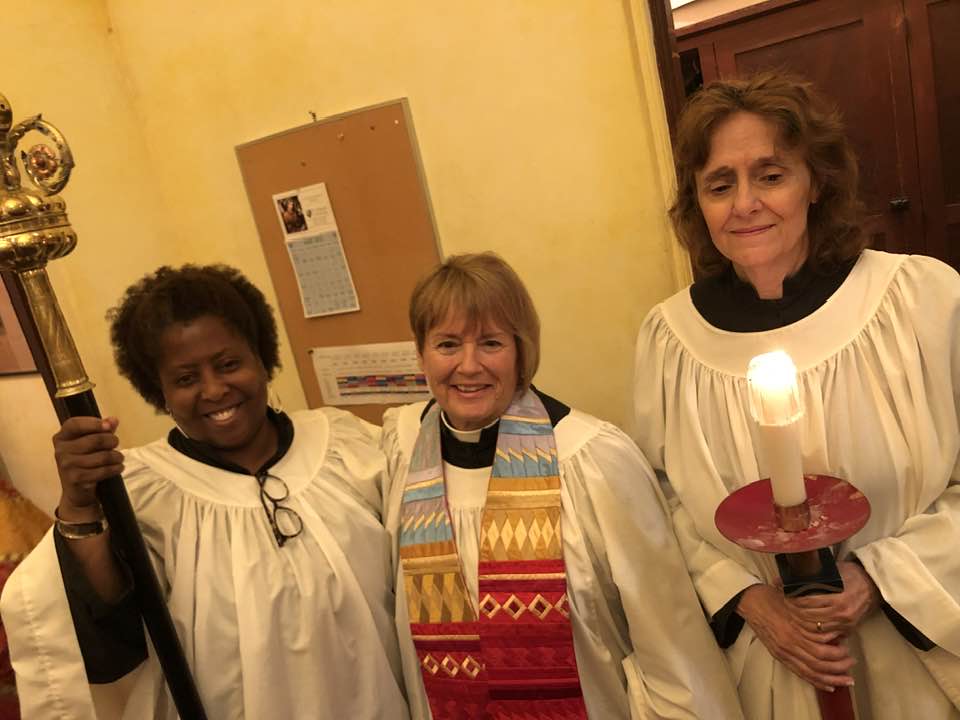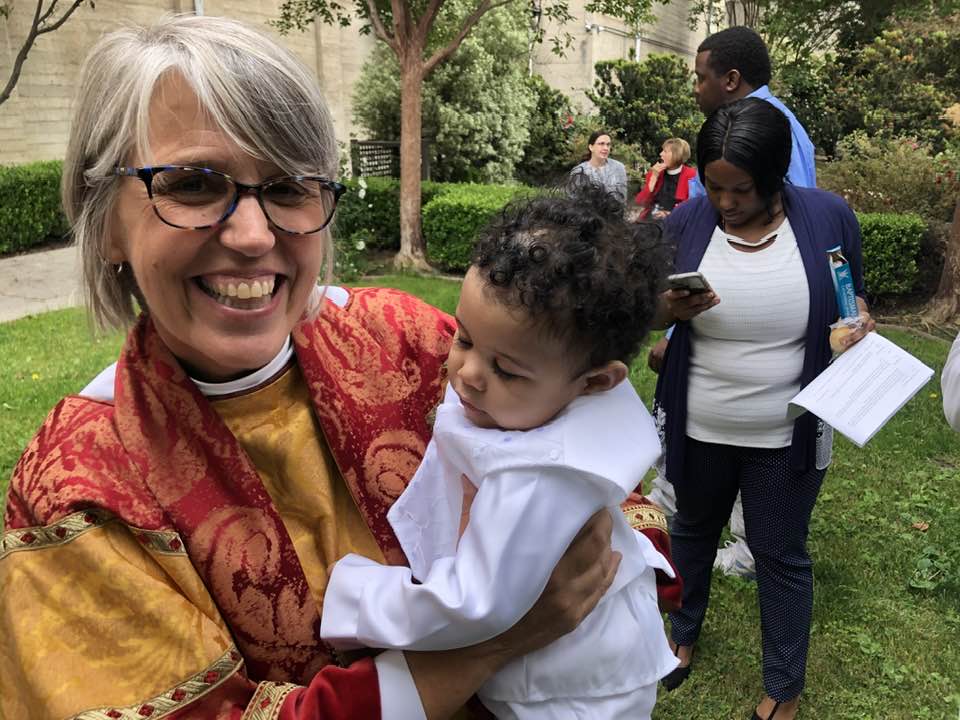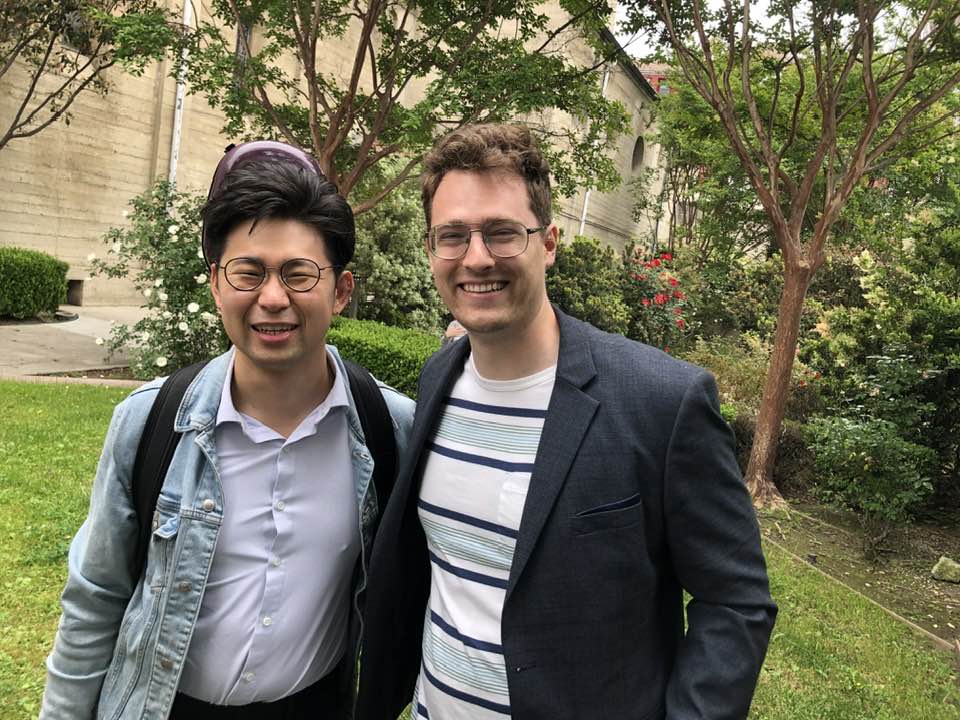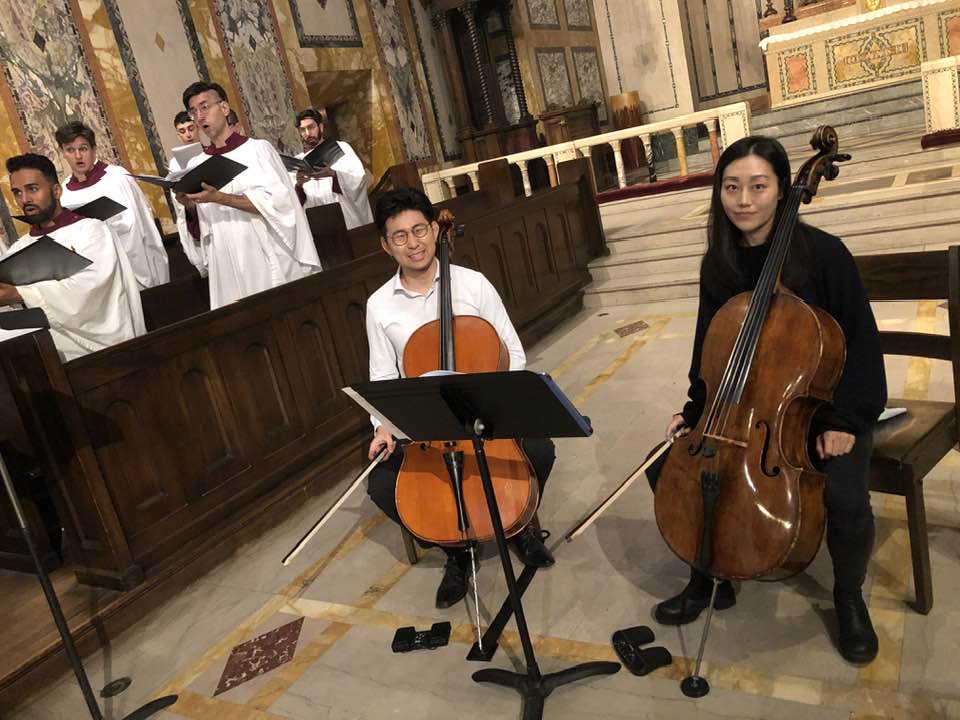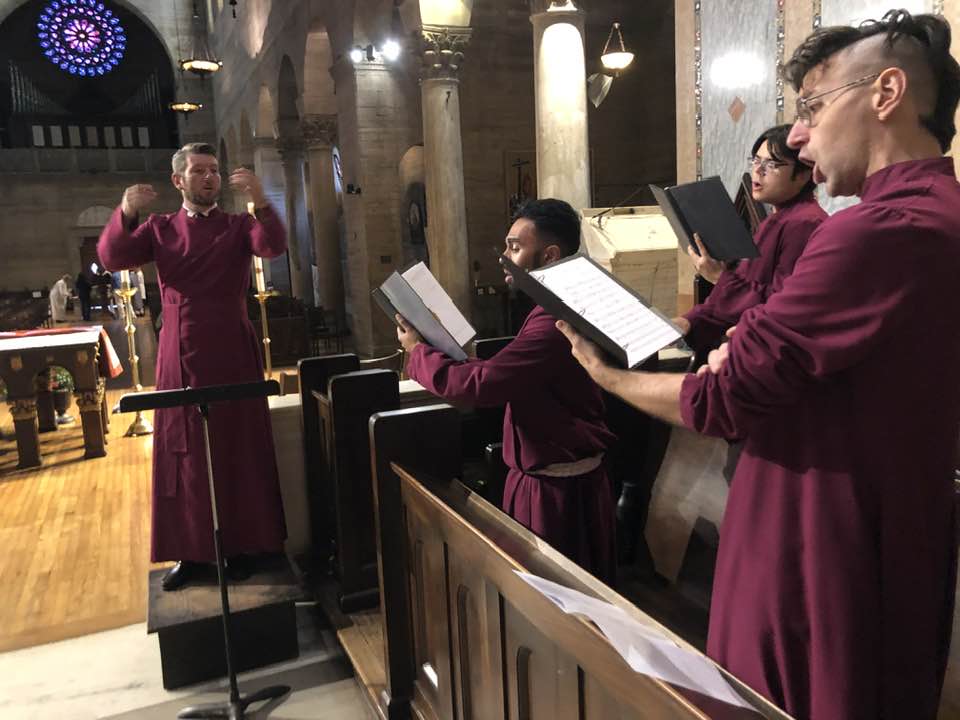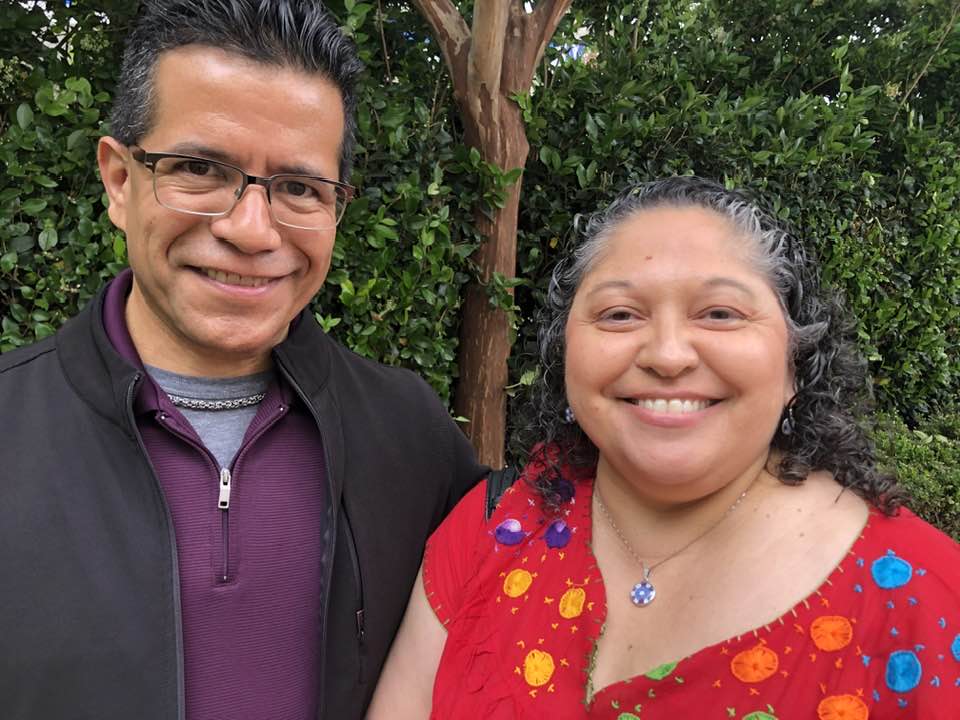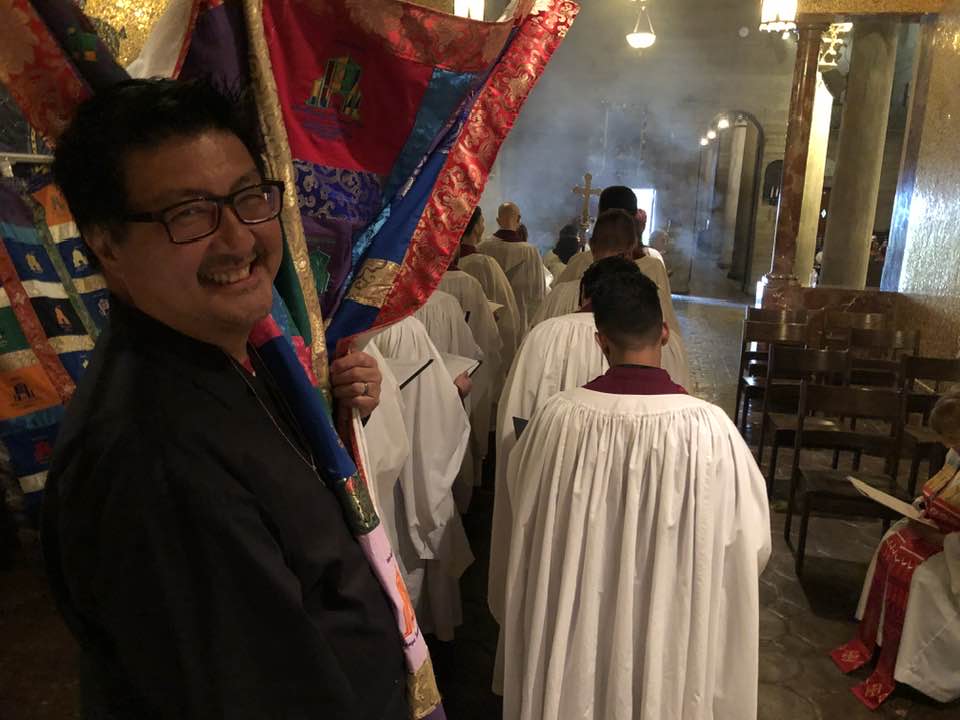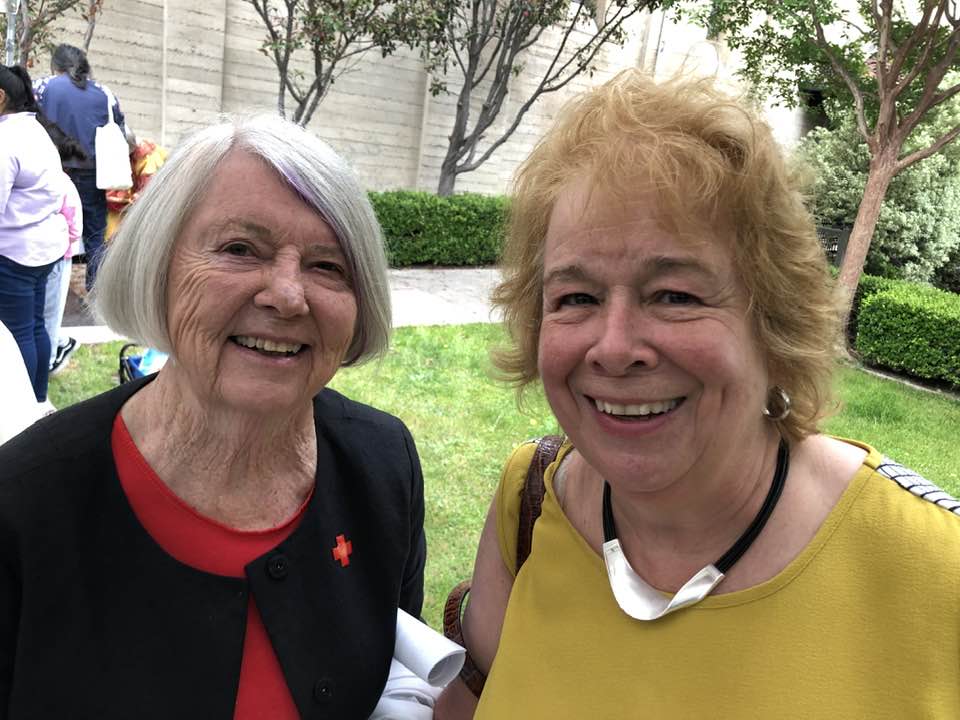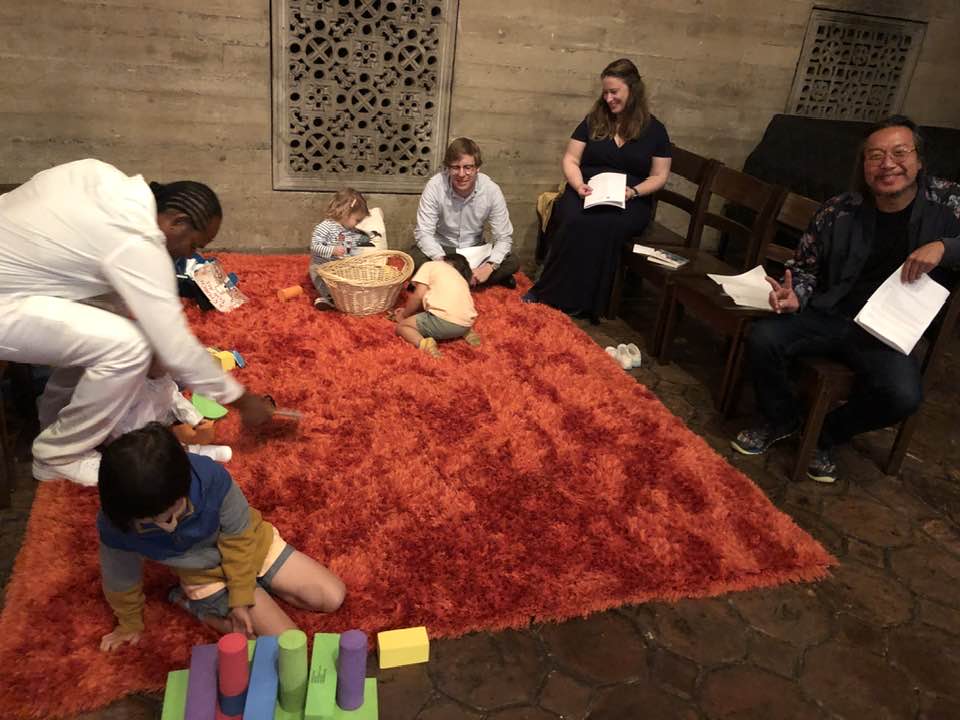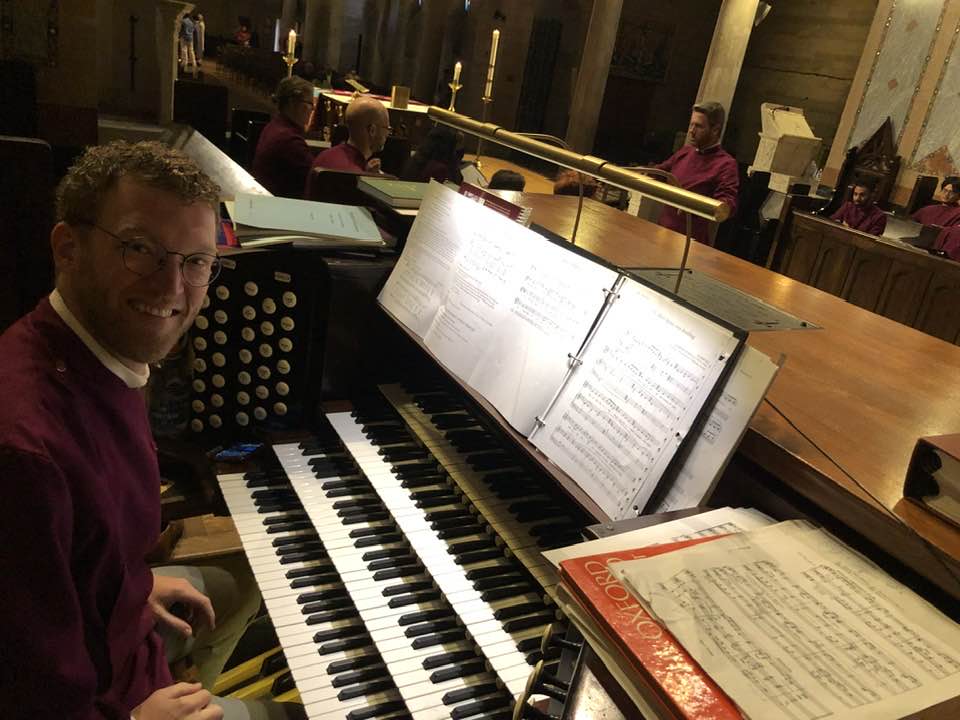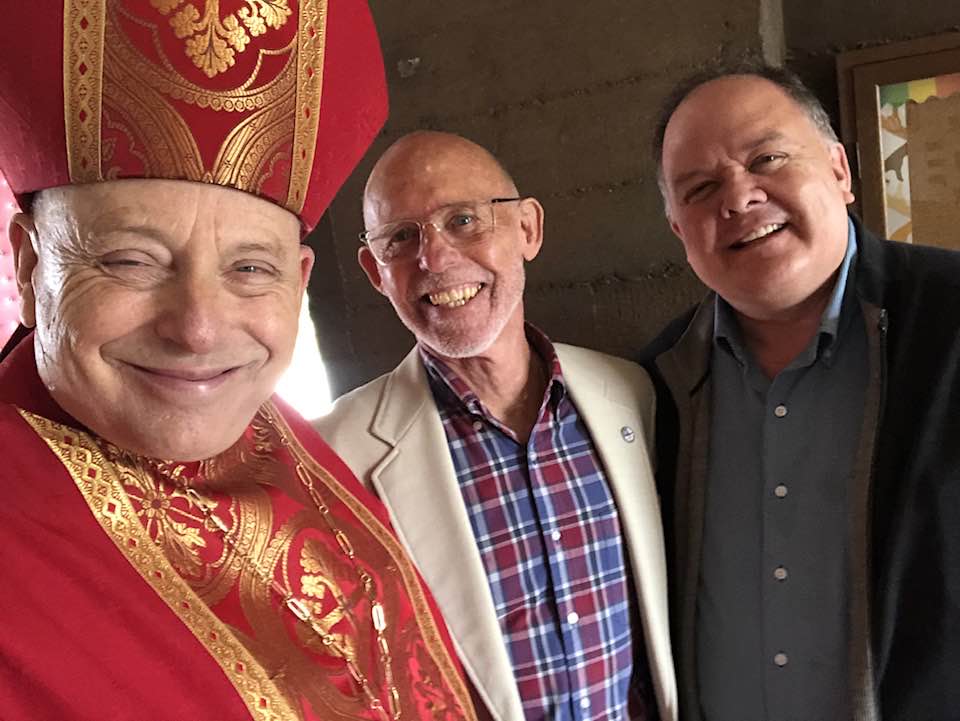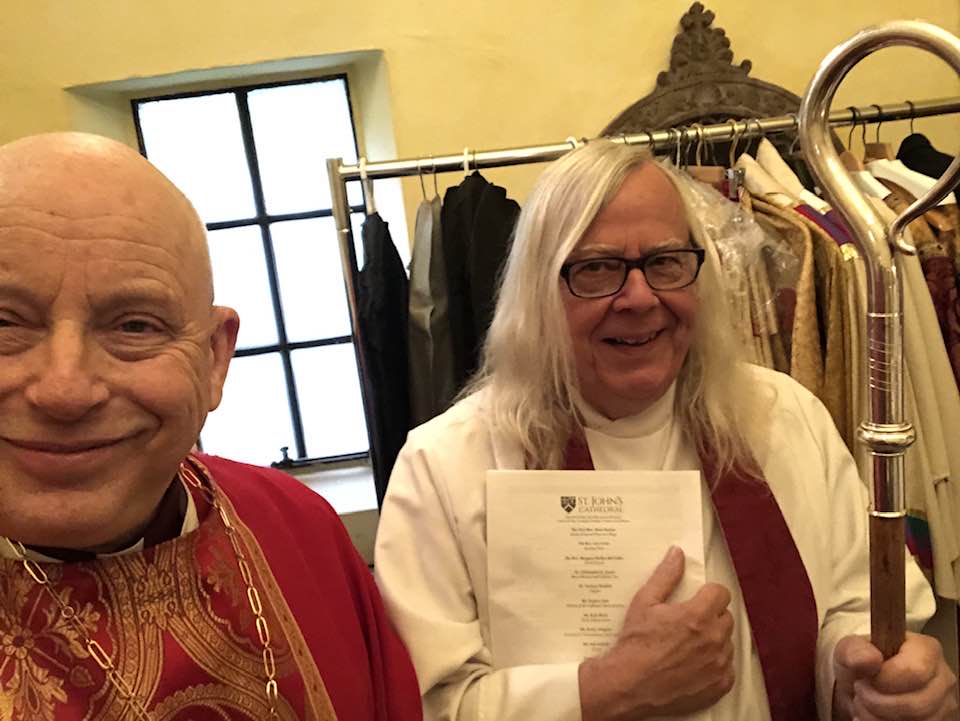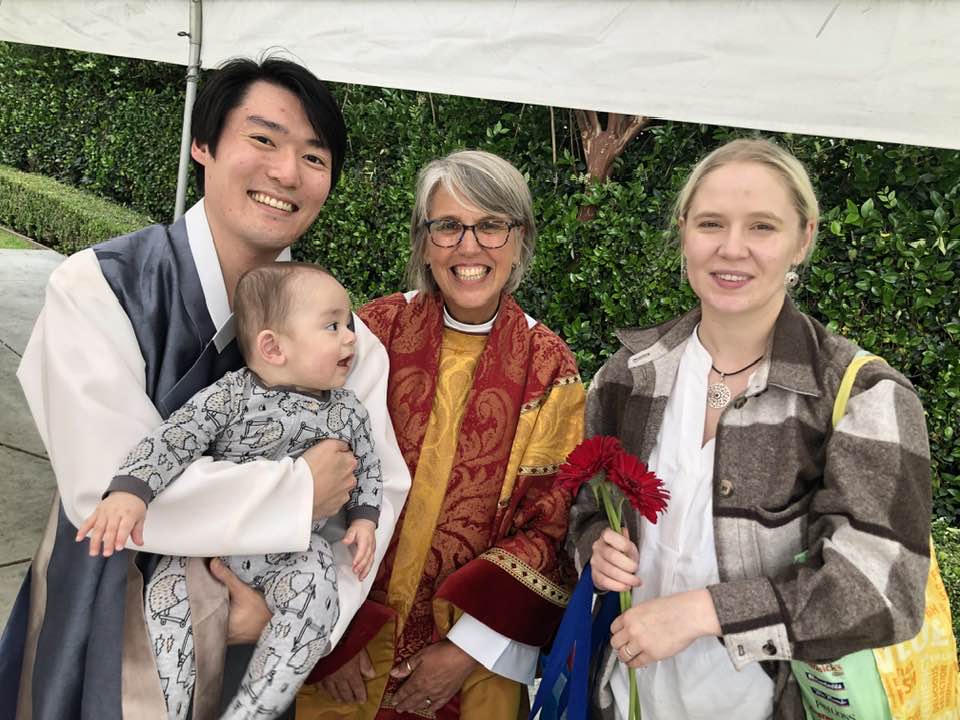
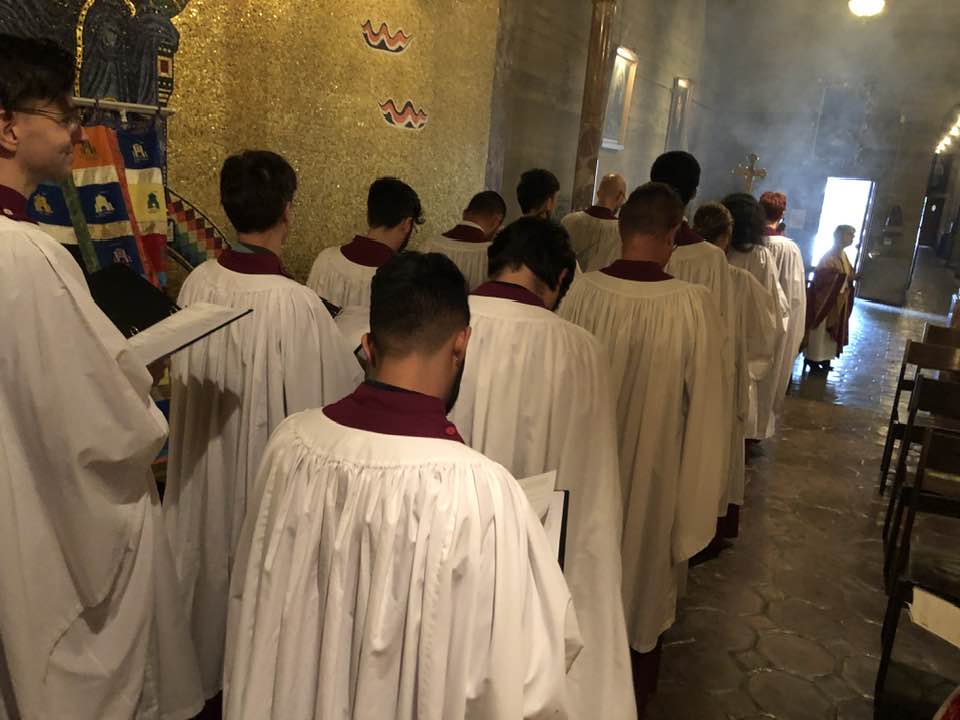 It’s a blessing to be with you this Pentecost Sunday, which Dean Anne Sawyer and her colleagues have envisioned as a glorious culmination of Asian American and Pacific Islander Heritage Month.
It’s a blessing to be with you this Pentecost Sunday, which Dean Anne Sawyer and her colleagues have envisioned as a glorious culmination of Asian American and Pacific Islander Heritage Month.
Godparents, parents, and sponsors will also present Agnese and Amiri for baptism as we welcome them into the circle of light – as we proclaim our unity, as we work out the eternal math problem God’s way, where all complex numbers are reduced to the number one, for the one body.
Many years ago, when I was still in seminary, as director of the Nixon library in Yorba Linda, I was in Beijing working on an exhibit for our museum. I was curious about life in the Christian church in a communist country. I’d read a little bit about what Chinese Christians endured.
So early one Sunday morning, I walked into an old church near my hotel, where Holy Eucharist was underway. This was a sanctioned Roman Catholic church, its loyalty pledged not to Rome but the Chinese government. More recently, China and the Vatican have grown closer, as authoritarian institutions have a habit of doing. While the official Catholic Patriotic Assn. recommends bishops, Rome reserves the right to veto them.
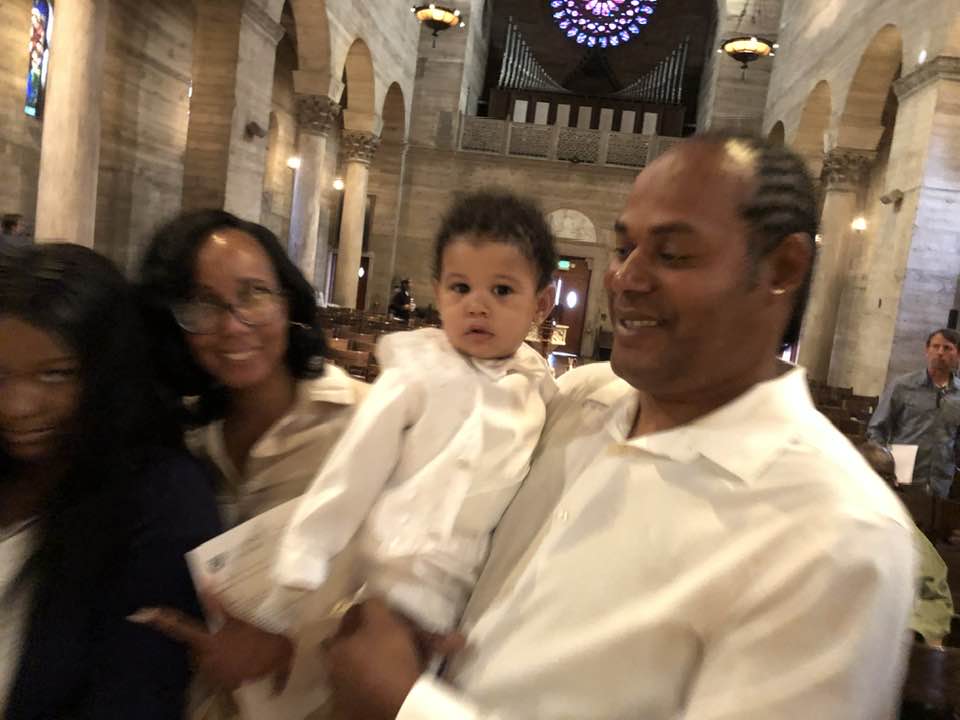 But the Chinese church still labors under limitations we would find abhorrent. Sometimes congregants in the United States want preachers to avoid politics. In China, preachers are ordered to avoid politics. Everyone knows what happens when you disobey. Another morning, on that visit or another one, I was in Tiananmen Square at dawn, watching the changing of the guard outside the Gate of Heavenly Peace. A small demonstration broke out – just a few people, possibly from the Falun Gong movement. Within seconds, plainclothes police emerged from the crowd – they’d been embedded with us — bundled the protestors into a van, and took them away.
But the Chinese church still labors under limitations we would find abhorrent. Sometimes congregants in the United States want preachers to avoid politics. In China, preachers are ordered to avoid politics. Everyone knows what happens when you disobey. Another morning, on that visit or another one, I was in Tiananmen Square at dawn, watching the changing of the guard outside the Gate of Heavenly Peace. A small demonstration broke out – just a few people, possibly from the Falun Gong movement. Within seconds, plainclothes police emerged from the crowd – they’d been embedded with us — bundled the protestors into a van, and took them away.
That Sunday morning in the Beijing church a quarter a century ago, the sermon was in Mandarin, so I didn’t understand it. But the moment Holy Eucharist began, I understood everything, once I heard the three-round call and response at the beginning, called the Sursum Corda. “The Lord be with you/And also with you.” This was in my language, since the mass had become the language of my heart. I knew exactly what the priest was saying – not every word, but everything that mattered. When we came to the Lord’s Prayer, I joined my voice to my siblings’ – at the peace, we’d already exchanged smiles and bows – and then joined them in line for communion. It was, of course, a classic Pentecost experience. A stranger in the capital of an oppressive government. A foreigner understanding in their language what other believers were saying in theirs about God’s liberating deeds of power.
During my years with President Nixon and his library, I visited China a half-dozen times but was never a guest in a private home. But that Sunday, I shared a family meal with fellow members of the one body – our connection in Christ and our common humanity asserting themselves, if just for a moment, over our differences of language and nationality.
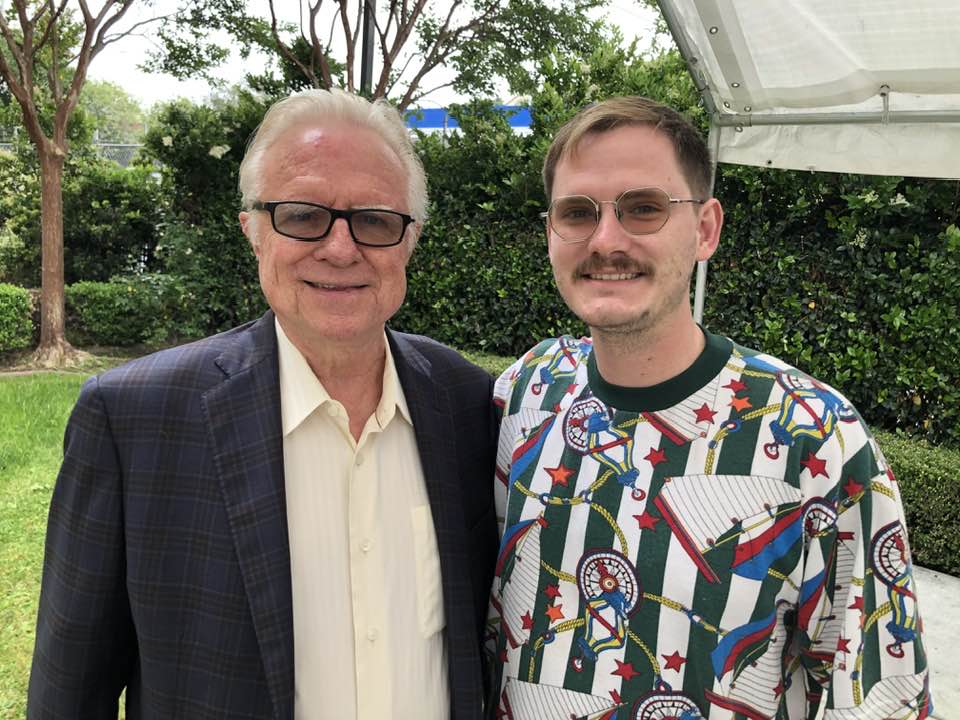 Others have no doubt had such sacred experiences while traveling and worshiping abroad. It’s a little strange that we don’t crave them when we’re closer to home. In our service this morning we’re hearing languages other than English. If we don’t understand, we can follow along in the bulletin, just as we often do if the word of God is proclaimed in our own tongue.
Others have no doubt had such sacred experiences while traveling and worshiping abroad. It’s a little strange that we don’t crave them when we’re closer to home. In our service this morning we’re hearing languages other than English. If we don’t understand, we can follow along in the bulletin, just as we often do if the word of God is proclaimed in our own tongue.
Remember how it is when we worship abroad and come to the Lord’s Prayer and know exactly what they’re saying. And yet liturgists say that the hardest service to design for a parochial setting is a bilingual or multilingual one, because people like to hear their own language in church. Sometimes they insist on it and even express resentment when they don’t, and the word is proclaimed in someone else’s language instead.
Now the Reformation in Europe was all about people receiving the grace of hearing worship in the vernacular – in their own language – instead of Latin. But we are a diocese and a region of many vernaculars, an international crossroads just like Jerusalem, where people from all over the world come to visit, do business, and live and raise their families. Our neighborhoods and pews can be laboratories for testing and enhancing our multicultural competence.
But it is not always in our nature to be willing to try, to be curious enough about our neighbor and their narrative, as St. John’s Cathedral is being curious this morning, to seek out common ground – to be confident enough in Resurrection to risk some of our space and privilege for others’ sakes. For church people, that lack of curiosity, and that aversion to risk and sacrifice, can actually express itself in the form of anger when the Lord’s Prayer is read out in someone else’s language.
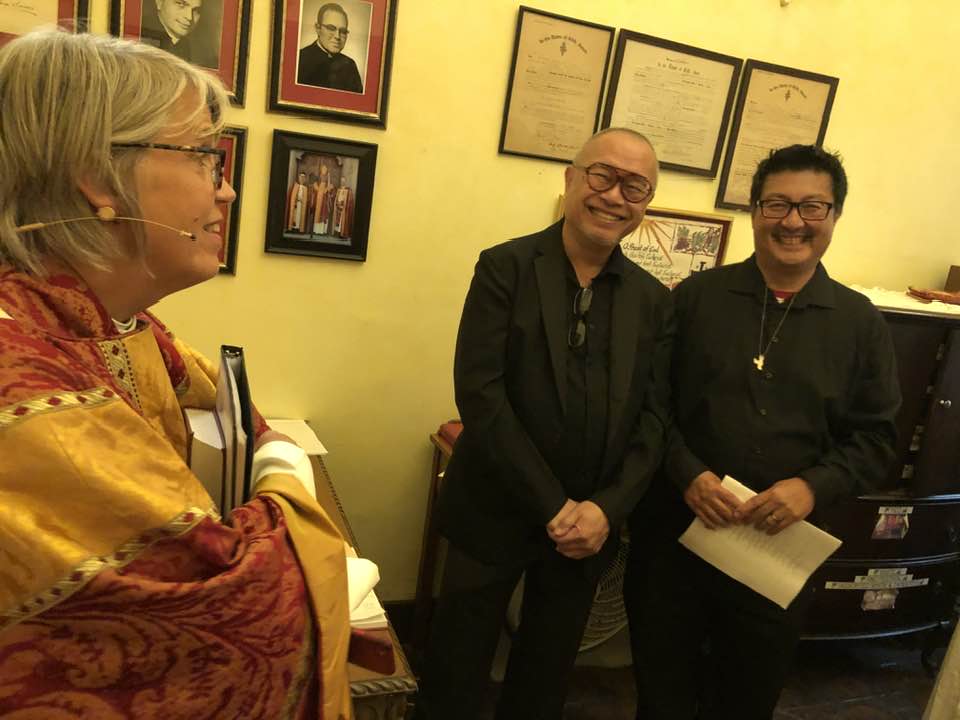 It has ever been thus, ever since that great and glorious morning in Jerusalem, when the unity of our faith in Resurrection love was momentarily enough to overcome every barricade of language and nation. Ever since, again and again, we have averted our eyes from the liberating tongues of flame, turned our faces away from the bracing, propulsive wind of the Holy Spirit.
It has ever been thus, ever since that great and glorious morning in Jerusalem, when the unity of our faith in Resurrection love was momentarily enough to overcome every barricade of language and nation. Ever since, again and again, we have averted our eyes from the liberating tongues of flame, turned our faces away from the bracing, propulsive wind of the Holy Spirit.
Paul wrote to the Corinthians that we were “each given the manifestation of the Spirit for the common good.” Yet the church’s sins, splinters, and schisms express a poor manifestation of the common good. In the same way the sacred American creed — “Liberty and justice for all” – keeps coming in second to the creeds of privilege, power, pride, and prerogative.
But the glory of our faith as well as the American experiment is that they are infinitely perfectible. This Memorial Day weekend, we give thanks for those who have given their lives in four centuries for the sake of American values at their best. We may never reach the promised land – but we can walk these steps in the right direction with one another and put our hands together on the arc of history like hands on a plow and reap a harvest of hope for the saints to come.
Speaking of liturgy, the whole history of the church and the United States is like a church service – sing glory, proclaim the word, acknowledge our miserable sins and offenses against the heart of God and democracy, and then resolve to use the new day to beget a new birth of righteousness, justice, and love. As Peter said when he recited those words from the prophet Joel, older people, out of all our experiences of darkness and light, of sorrow and joy, are still dreaming our dreams of better times. Younger people have their unique and powerful visions of justice and peace. Together we make a mighty Holy Spirit choir.
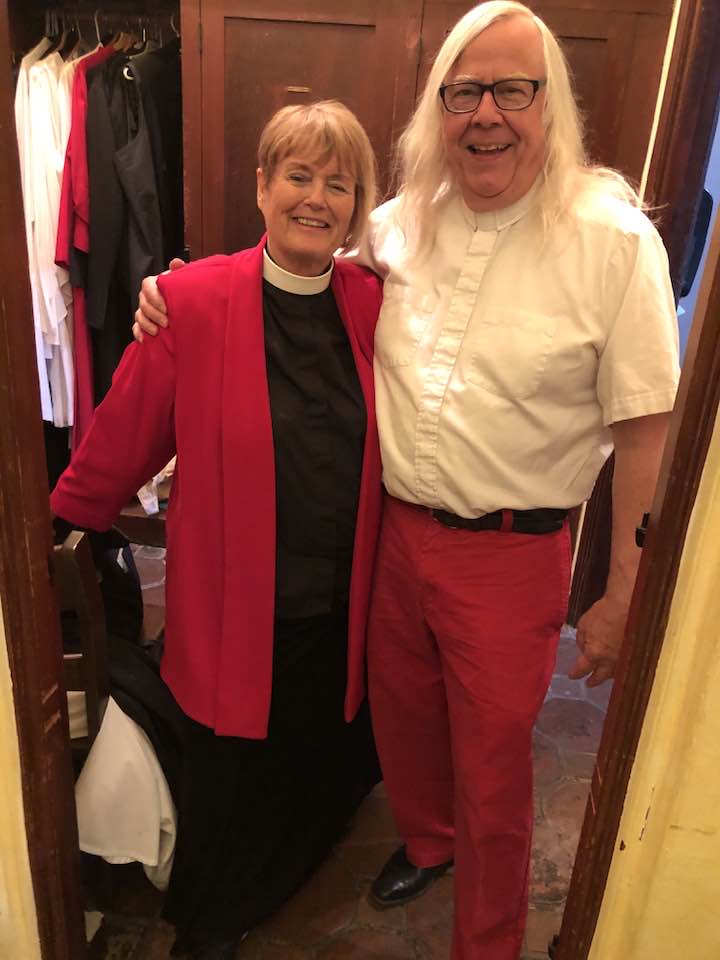 Because it’s Sunday morning again – it’s Pentecost Day again in the Christian church – and in these times we at long last proclaim a Pentecost of pluralism.
Because it’s Sunday morning again – it’s Pentecost Day again in the Christian church – and in these times we at long last proclaim a Pentecost of pluralism.
A church where people lower their defenses, listen to and learn their neighbors’ languages and narratives, and rediscover that welcoming the stranger and foreigner isn’t a slogan, it’s the whole ball game. Remember what Paul said. The work of the Holy Spirit is always and uniquely to unite people for the sake of the common good, across difference – in our time, wealth, race, national origin, orientation, and identification.
And a Pentecost of pluralism for our nation, which lived long years in the darkness of racial and gender apartheid and just recently smelled the bitter stench of tyranny. Government that governs best is government that represents the largest and most diverse cohort of all its people.
Because Christian and civic creeds are just clanging cymbals unless they are proclaimed by true believers in the proclamation “out of many, one” – and when we do believe, as our Lord Jesus Christ promises, then rivers of living water will flow from our hearts and begin to heal this broken church and this parched land.
— My sermon this morning at St. John’s Cathedral in Los Angeles, together with my photo album.
